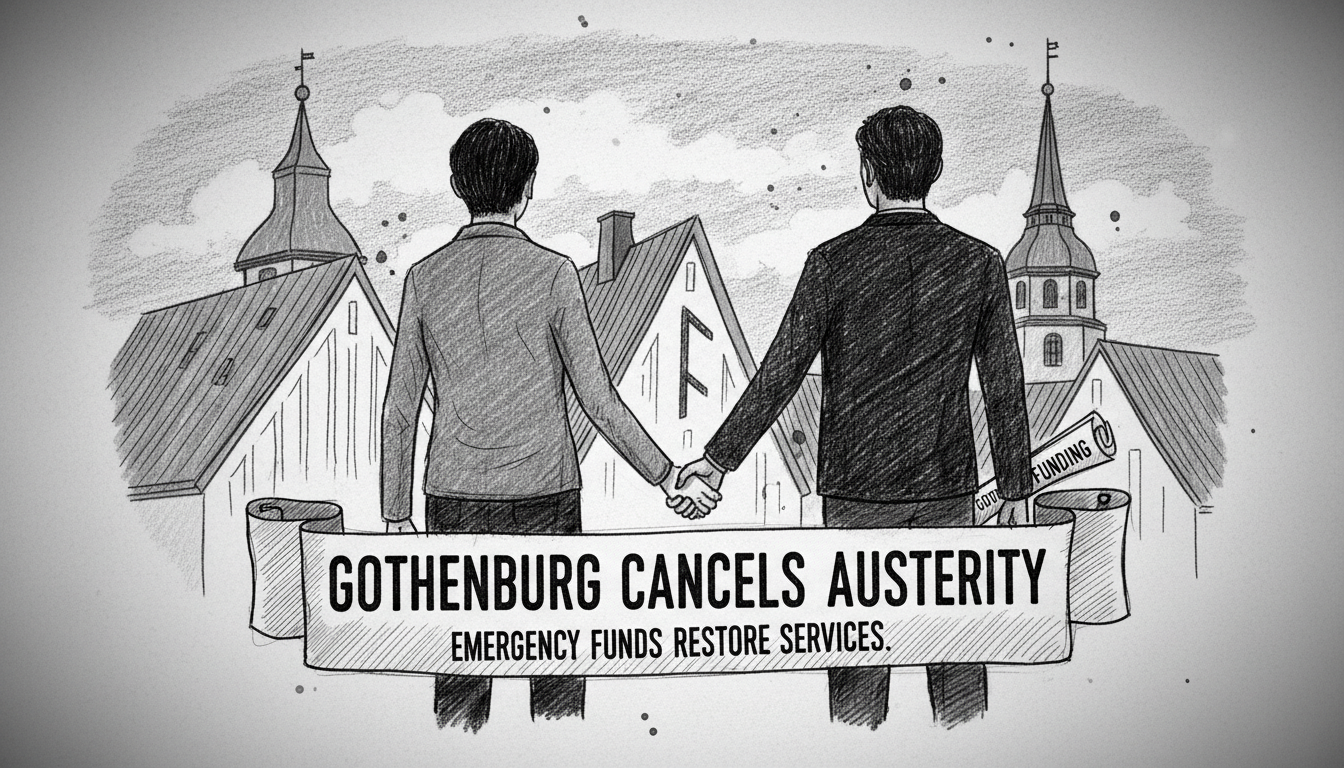Northeast Gothenburg's social services committee has reversed planned austerity measures after receiving emergency funding. The district faced severe budget cuts as costs skyrocketed in recent months. Local officials described the situation as critical before the financial intervention.
The social services committee had implemented tough savings packages affecting community services. These included staff reductions, position relocations, and canceled traditional holiday celebrations. The measures created concern among residents who depend on social services in the Northeast district.
Now the governing board has allocated additional funds to cover the shortfall. The money will restore services and prevent further cuts to social programs. Jenny Broman, the councilor responsible for social affairs, stated the funding would rescue Northeast district operations.
This situation reflects broader challenges facing Swedish municipalities. Many local governments struggle with rising costs and fixed revenue streams. The Nordic welfare model depends heavily on municipal funding for social services. When districts face budget shortfalls, vulnerable populations often feel the impact first.
Gothenburg's Northeast district serves diverse communities with varying social needs. The area includes both residential neighborhoods and commercial zones. Municipal social services in Sweden typically handle elderly care, disability support, and family services. These programs form the backbone of the country's social safety net.
The last-minute funding solution raises questions about long-term budget stability. Municipal finances in Sweden operate on annual cycles with limited flexibility. Unexpected cost increases can create immediate pressure on essential services. This pattern has repeated in various Swedish municipalities over recent years.
International observers should note how Swedish local governments manage fiscal challenges. The Nordic approach to welfare services differs significantly from other models. Municipalities bear direct responsibility for implementing national social policies. This creates tension between local funding limitations and national service expectations.
The emergency funding for Northeast Gothenburg prevents immediate service reductions. Yet the underlying structural issues remain unaddressed. Municipal officials must now develop sustainable budget solutions. The coming months will show whether this represents a temporary fix or lasting resolution.
Similar budget crises have occurred in other Swedish cities like Malmö and Stockholm. The pattern suggests systemic challenges rather than isolated incidents. Swedish municipalities face rising costs for elderly care and refugee reception. These pressures test the limits of the traditional Nordic welfare model.
For expats and international residents, these developments matter significantly. Social services availability affects quality of life decisions. The stability of municipal funding influences housing choices and community investment. When basic services face uncertainty, everyone in the community feels the effects.

